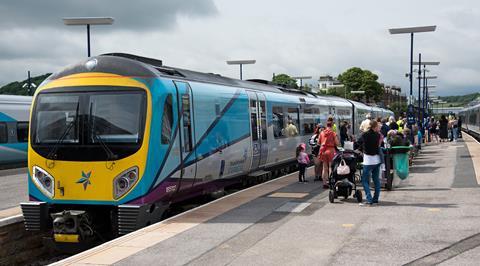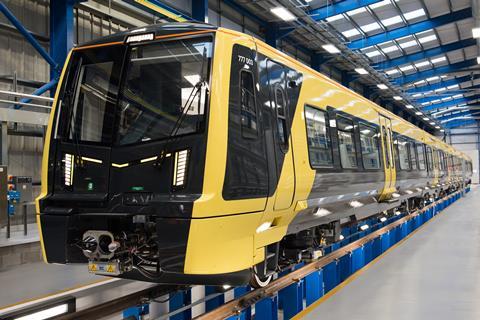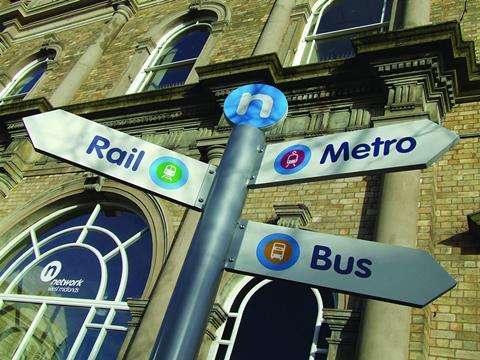
UK: Great British Railways will offer local leaders a greater say in their area’s rail services, according to the Levelling Up the United Kingdom white paper published on February 2.
The government anticipated that ‘by 2030, local public transport connectivity across the country will be significantly closer to the standards of London, with improved services, simpler fares and integrated ticketing.’ GBR would be the ‘guiding mind’ for the entire rail system and would be required to consider wider network impacts of local proposals, it explained.
According to the white paper, the GBR Transition Team will explore opportunities to improve engagement and develop local partnerships to succeed those already in operation, encompassing ‘the whole passenger offer’ and the long-term rail strategy for a given area. Depending on local needs and capacity, this could include the ability for local leaders to integrate ticketing and fares, control stations and use funds raised locally to buy additional services or infrastructure.

Existing devolved responsibilities in Scotland, Wales, Merseyside, Tyne & Wear and London will be maintained.
A framework sets out options for further devolution in England. Level 3 of this framework would be ‘a single institution or county council with a directly elected mayor, across a functional economic area or whole county area’, which would have ‘priority for new rail partnerships with GBR’.
The government says it wants to support private sector partnerships, citing as an example Rail Forum Midlands, which has around 350 members ‘in one of the largest clusters of rail companies in the world’ and enjoys close links with Midlands Connect, local councils, central government departments and other stakeholders.
Industry responses
Publication of the white paper was welcomed by Railway Industry Association CEO Darren Caplan, who said it was ‘particularly positive to see transport connectivity and rail services recognised within it. We know that rail is a vital catalyst for economic growth, generating £2·50 from every £1 of spend, and investment in our railway touches all corners of the country, supporting cities, towns and communities across the UK.
‘We urge the government to continue investing in rail as passenger numbers return post-coronavirus and to support the decarbonisation, digitalisation and expansion of the railway network, ultimately ensuring the rail industry is best able to support economic growth, investment and jobs for the future.’
Andy Bagnall, Director General of the Rail Delivery Group, said ‘to get reform right and deliver what passengers want, it’s essential that the new passenger service contracts enable Great British Railways to guide, rather than control, the industry and to listen to and empower operators and the regions.’
Chair of the Urban Transport Group Laura Shoaf said ‘devolving more powers over transport is the right approach’ but ‘we need to see this translated into action, including on the devolution of more powers over local rail networks, over bus funding, as well as less micro-management of our capital investment programmes.’
FirstGroup said ‘the government’s vision is best delivered through the expertise and innovation of private transport operators.’

Will Wilson, CEO of Siemens Mobility Ltd, said ‘if the government is serious about levelling up through improved transport services, simpler fares and integrated ticketing, then money needs to be available for investment in digital mobility-as-a-service’ technologies, and powers provided to get all transport operators to take part.
‘We know it works already in places like København, and it’s about time we made it just as easy for passengers in our towns and cities to plan and book their journeys from the first mile to the last.’
Richard Bonner, City Executive for the North at Arcadis, said ‘systematic approaches are required to develop complex programmes across energy networks, transport systems, industry, housing and buildings and the white paper creates a strong platform for strengthening these’. However, he cautioned that ‘while there is much to celebrate in the white paper, we look forward to seeing greater clarity on funding’.

Stefanie O’Gorman, Director of Sustainable Economics at Ramboll, said ‘the piecemeal nature of the funding falls short of delivering the transformational change needed’, adding that ‘while ensuring reliability of transport services is important, the paper does not consider the cost of public transport and therefore the real issue of equity of access for all’.
General Secretary of the TSSA trade union Manuel Cortes said the government ‘talk a good game when it comes to levelling up, but they will be judged on their actions’.
He said ‘if the government want to use London as a comparator on transport, then they must invest in Transport for London not leave it to rot and decay. Continually investing in TfL and all transport is the right way to raise up transport services across the country.’
RMT General Secretary Mick Lynch said ‘we don’t yet need yet another announcement, we need action that delivers the whole country affordable, regular and reliable public transport.’



